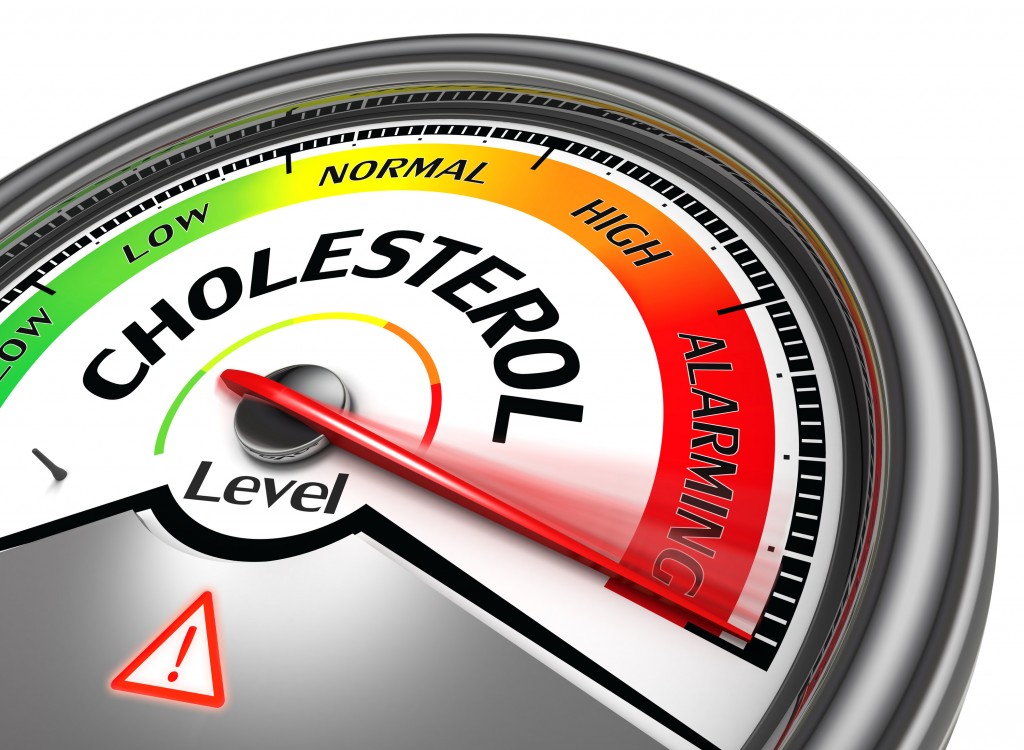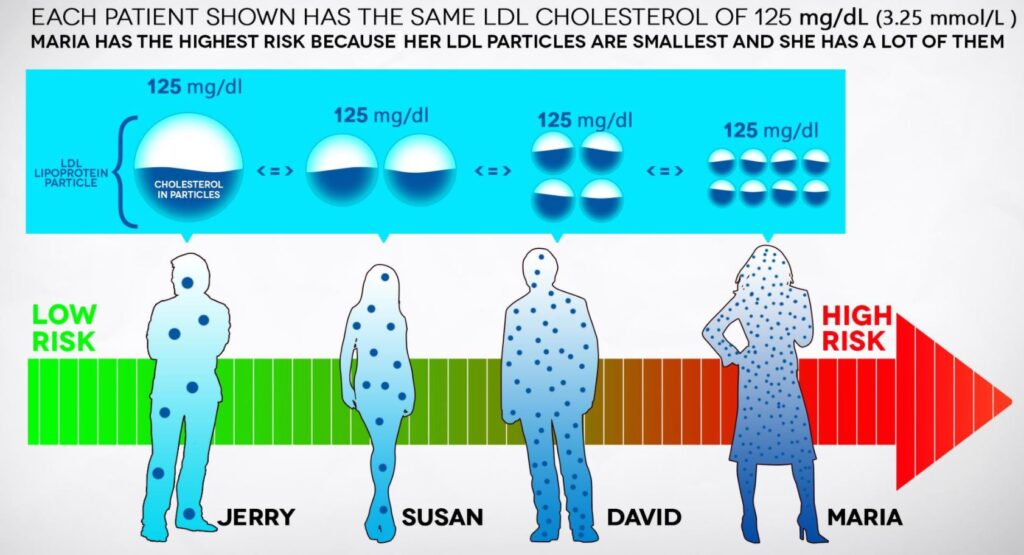
Saturated Fats Demystified
People wince at the thought of saturated fat in their food. We’ve been trained to think of them as unhealthy. The American Heart Association on their website states that “Eating foods that contain saturated fats raises the level of cholesterol in your blood. High levels of blood cholesterol increase your risk of heart disease and stroke”. That point of view, and saturated fats reputation as a “bad” fat is very common. The question you should ask, is if it’s true. New studies are showing that this understanding is wrong, and that saturated fat should be consumed in moderation and from good sources for optimal health.
Saturated Fat Facts
Saturated fats are fatty acid chains in which there is no room for more molecules to bond to them– they are complete, full, in other words saturated. These fats are usually solid at room temperature. Natural sources of saturated fats include fat found in beef, pork, butter, lard, palm oil, eggs, cheese, dairy and coconut. Saturated fats are also found in commercial products including butter spreads, margarines, shortenings, and all goods made with those products.
Healthy saturated fats from grass-fed and grass-finished animal products and coconut oil are healthy for you; they contain omega-3 fatty acids, conjugated linoleic acid (CLA), fat soluble vitamin A, D and K, vitamins B1, B2, and B12 as well as zinc and iron. Fats from these sources are anti-inflammatory.
Saturated fat from conventionally raised, soy and corn fed, animals do not contain these healthy nutrients in great quantities and are generally considered inflammatory and bad for you.
Trans fats are saturated fats. They are also called partially hydrogenated or hydrogenated oils when processed mechanically via hydrogenation. Hydrogenation changes polyunsaturated liquid oils to a solid and more saturated form that has a longer shelf life by adding hydrogen molecules to the oil. Many commercial products contain these fats and most restaurants use these fats for cooking due to the longer shelf life and very high heat that these fats can be cooked at.
Cholesterol Facts
Cholesterol is a natural substance made by the liver to carry fats and fat based vitamins in the water- based bloodstream. Cholesterol is needed for life. Fats and fat soluble vitamins need cholesterol to carry them from point A to point B in your body. We need cholesterol to carry Vitamin K to our finger if we have to stop a cut from bleeding, to get Vitamin A to our eyes for conversion into retinol, to get fats into and out of cells for energy processing and more. More than just a transporter, cholesterol also acts as a building block for hormones and maintains the integrity of cellular membranes.
There are five main types of cholesterol in our bodies but only two are present in large quantities; LDL and HDL. LDL is low density lipoprotein and HDL is high density lipoprotein. Both are needed. LDL carries fat and fat soluble molecules away from the digestive system to be used by the peripheral cells. HDL carries fat and fat soluble molecules back to the digestive system so they can be processed out.
LDL gets a bad reputation and is nicknamed the bad cholesterol while HDL is named the good cholesterol, but both are beneficial. What makes the good/bad label is when the proportion of LDL is significantly higher than HDL or vice versa. We need them to be in balance. Most Americans have high levels of LDL and low levels of HDL and that’s what increases disease risk.
When too much LDL circulates in the blood, it can slowly build up in the walls of the arteries that feed the heart and brain. Together with other substances it can form plaques and atherosclerosis. If a clot forms and blocks a narrowed artery, it can cause a heart attack or stroke.
Saturated Fats and Cholesterol
Here’s where we are redefining our stance a little when it comes to saturated fats. Yes, saturated fats increase cholesterol as the American Heart Association states. The key fact here though, is ALL fats increase cholesterol. Saturated fats increase LDL, but we need LDL. We need all types of cholesterol in our body. Cholesterol serves a purpose.
If you have taken all saturated fat out of your diet and do not have adequate blood levels of LDL then you can be doing your body harm by not getting enough saturated fat. Too little LDL is just as risky for disease as too much.
If you have moderate levels of LDL and low levels of HDL then that imbalance is the problem. You need to increase your HDL through omega-3 fatty acids (described below) and exercise.
If you have high levels of LDL then you’ll want to moderate your saturated fat intake till you can bring that level into balance. This should be worked on with your health care provider and monitored carefully as, while LDL is generally considered “bad” cholesterol, it is more complex. It’s the particle size that really determines your disease risk.
LDL Particle size
There are different types of LDL particles depending on their size and that is important for determining whether LDL may contribute to or be protective of heart disease.
Large fluffy LDL particles carry more fat-soluble nutrients and antioxidants to protect the body from oxidative stress. Small dense LDL particles can enter the endothelial lining of the artery where it can oxidize to form plaque. There is a high association between these small, dense particles and cardiovascular disease. In addition, higher fasting insulin and hemoglobin A1C levels are associated with these small dense particles. Triglyceride and fasting insulin levels can be a clue as to whether you have more of the large (healthy) LDL or smaller (risky) LDL. Your health care provider can look at these particle sizes in detail if they run a NMR test.

Trans Fats
The saturated fats that are being properly vilified are the trans fats; the mechanically hydrogenated saturated fats that are found in baked goods and used in packaged and restaurant foods. Trans fats are harmful to us physically and are directly linked to heart disease; they increase total cholesterol and specifically increase LDL. Trans fats are also called hydrogenated fats/oils or partially hydrogenated fats/oils. These fats should be avoided at all cost.
Omega-6 Fats
Other fats to limit (in addition to conventional animal products and trans fats) are polyunsaturated omega-6 fats. Omega-6 oils are stable cooking oils that can be cooked at high temperatures and aren’t prone to becoming rancid so are used regularly in processed foods. These fats are inflammatory. These fats are also essential, we need a little bit of them in our diet. The problem is they are common, the American diet is rich in omega-6 fatty acids (corn, soybean, canola, cottonseed, safflower and sunflower oils) and these oils should be limited in most standard diets. High levels of these fats will increase your risk for cardiovascular disease and chronic inflammatory diseases.
Due to the low cost of corn and soy, most farm animals are fed these products making the meat and biproducts of those animals (eggs, milk, cheese, butter, and meat) have inflammatory effects on the body. Most Americans get too much omega-6 through conventional meat and from eating out in restaurants or eating processed foods which use corn, soy, and canola oil due to their low cost.
Monounsaturated Fats
Monounsaturated fats are the ones doctors recommend most often as they are more shelf stable than omega-3 fats and are very heart healthy. They reduce LDL cholesterol and spare HDL in the blood stream, meaning they reduce what most Americans have too much of, and don’t destroy our HDL, the “good guys” like trans fats can. Sources include cold or expeller pressed olive oil, macadamia nut oil, avocados, nuts, sesame seeds and sesame paste (tahini), natural peanut butter, and cashew butter.
Omega-3 Fats
Omega-3 fatty acids are essential to health, they promote blood vessel dilation, have anti-inflammatory and anti-coagulant effects, increase HDL, increase insulin sensitivity, decrease pain, and decrease airway constriction. Omega-3 fats are not used in manufacturing due to a short shelf life and because they must be refrigerated to remain healthy. Most Americans are deficient in omega-3 fats so need to seek them out specifically. They are found in flax, hemp, walnuts, borage and cold-water fish like salmon, mackerel and herring. To ensure these fats remain healthy your hemp, flax, walnuts and fish need to be raw or cooked at very low temperatures. I store my seeds and nuts in the freezer and cook my salmon at low temperatures (under 300 F).
You can take omega-3 fatty acid supplements but be mindful of the quality of the supplement. Supplements should be in opaque dark bottles, kept cold, be 6 months or less from the manufacturing date, and be 3rd party verified to be mercury free. My favorite brand is Nordic Naturals.
Cooking Temperatures for Healthy Oils
- Healthy Very High Heat-Sautéing oils (400-450 degrees): sesame oil, grape seed oil, peanut oil, lard from grass fed & grass finished animals
- Healthy High Heat Oils (350-400 degrees): macadamia nut oil, almond oil, coconut oil
- Healthy Medium Heat Oils (250-350 degrees): High-Oleic sun or safflower oils, olive oil, walnut oil, butter from grass fed & grass finished cattle (like Kerry Gold Butter)
- Oils to eat at room temperature (up to 200 degrees): unrefined sun or safflower oils
- Oils you need to keep cold: Flax and flax seeds, chia seeds
Big Picture
To keep your heart healthy, cut out trans fats completely. Moderate your intake of polyunsaturated omega-6 fats and ensure you are purposefully getting some omega-3 fats and saturated fat from healthy sources like grass-fed and grass-finished organic beef, butter or dairy (again, corn fed cattle have very little healthy saturated fat), coconut oil and pastured eggs.
Resources
- Association Between Omega-3 Fatty Acid Supplementation and Risk of Major Cardiovascular Disease Events, Rizos et al. Sept 2012, JAMA https://jamanetwork.com/journals/jama/article-abstract/1357266
- Neurological Benefits of Omega-3 Fatty Acids, Dyall S.C. & Michael-Titus A.T, 2008 Dec. Neuromol Med, 10: 219. https://link.springer.com/article/10.1007/s12017-008-8036-z
- Effects of high-fat and low-fat diets rich in monounsaturated fatty acids on serum lipids, LDL size and indices of lipid peroxidation in healthy non-obese men and women when consumed under controlled conditions, Egert S, Kratz M, Kannenberg F, Fobker M, Wahrburg U., 2011 Feb; 50(1):71-9. https://pubmed.ncbi.nlm.nih.gov/20521076/
- Dietary monounsaturated fatty acids are protective against metabolic syndrome and cardiovascular disease risk factors. Gillingham LG, Harris-Janz S, Jones PJ. 2001 Mar. 46(3):209-28. https://pubmed.ncbi.nlm.nih.gov/21308420/
- Trans fat is double trouble for your heart health. 2017 Mar; Mayo Clinic. https://www.mayoclinic.org/diseases-conditions/high-blood-cholesterol/in-depth/trans-fat/art-20046114?pg=2
Erin Williams, MSN CN LMP, is the founder of EZBalance.com, a health and wellness company established in 2001. Erin has a bachelor’s degree in Chemistry from Purdue, a master’s degree in Nutrition from Bastyr University, and is currently studying to become a Functional Medicine Practitioner. Erin enjoys sharing her love of natural health and wellness with people through lectures, blogs, and consultations.

